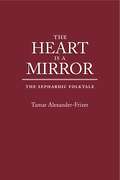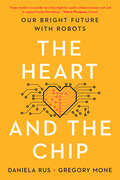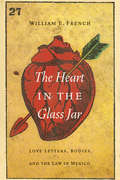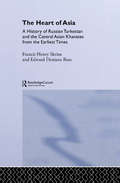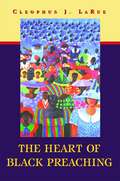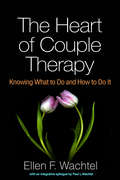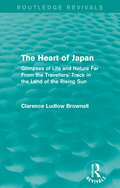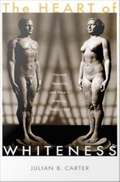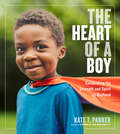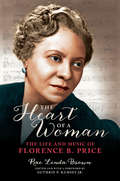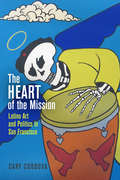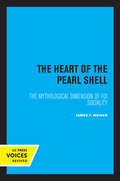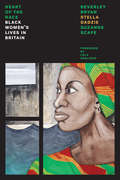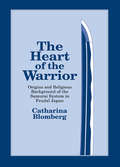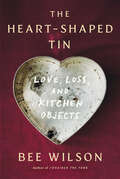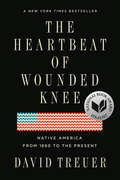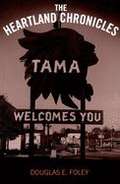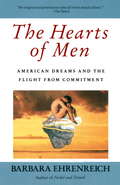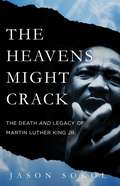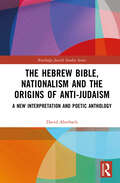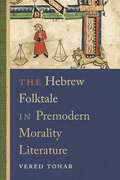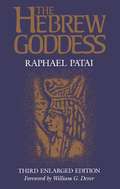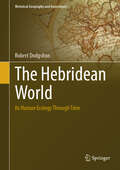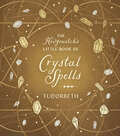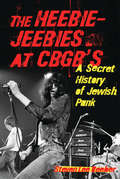- Table View
- List View
The Heart Is a Mirror: The Sephardic Folktale
by Tamar Alexander-FrizerSince their expulsion from Spain in 1492, Sephardic Jews have managed to maintain their Jewish faith and Spanish group identity and have developed a uniquely Judeo-Spanish culture wherever they settled. Among the important cultural ties within these Sephardic groups are Judeo-Spanish folktales, stories that have been passed down from generation to generation, either in the distinct language of the group, Judeo-Spanish (Ladino), or in other languages, such as Hebrew. In The Heart Is a Mirror, Tamar Alexander-Frizer examines the folk narratives of Sephardic Jews to view them both in relation to universal narrative traditions and the traditions of Jewish culture. In part 1, Alexander-Frizer investigates the relationship between folk literature and group identity via the stories' connection to Hebrew canonical sources, their historical connection to the land of origin, their treatment of prominent family members and historical events, and their connection to the surrounding culture in the lands of the Spanish Diaspora. Part 2 contains an analysis of several important genres and subgenres present in the folktales, including legends, ethical tales, fairy tales, novellas, and humorous tales. Finally, in part 3, Alexander-Frizer discusses the art of storytelling, introducing the theatrical and rhetorical aspects tied up in the Sephardic folktales, such as the storyteller, the audience, and the circumstances of time and place. This thorough and thought-provoking study is based on a corpus of over four thousand stories told by descendents of the Spanish Diaspora. An introduction addresses methodological problems that arise from the need to define the stories as Judeo-Spanish in character, as well as from methods used to record and anthologize them. Jewish studies scholars, as well as those interested in folktale studies, will gain much from this fascinating and readable volume.
The Heart and the Chip: Our Bright Future with Robots
by Gregory Mone Daniela Rus“Urges readers to consider how they might be used to enhance human work and to support human flourishing.” —Valerie Thompson, Science Daniela Rus, a leading roboticist and computer scientist, explores how we can use a new generation of smart machines to help humankind. There is a robotics revolution underway. A record 3.1 million robots are working in factories right now, doing everything from assembling computers to packing goods and monitoring air quality and performance. A far greater number of smart machines impact our lives in countless other ways—improving the precision of surgeons, cleaning our homes, extending our reach to distant worlds—and we’re on the cusp of even more exciting opportunities. In The Heart and the Chip, roboticist Daniela Rus and science writer Gregory Mone provide an overview of the interconnected fields of robotics, artificial intelligence, and machine learning, and reframe the way we think about intelligent machines while weighing the moral and ethical consequences of their role in society. Robots aren’t going to steal our jobs: they’re going to make us more capable, productive, and precise. At once optimistic and realistic, Rus and Mone envision a world in which these technologies augment and enhance our skills and talents, both as individuals and as a species—a world in which the proliferation of robots allows us all to be more human.
The Heart in the Glass Jar: Love Letters, Bodies, and the Law in Mexico (The Mexican Experience)
by William E. FrenchThe Heart in the Glass Jar begins with one man’s literal heart (that of a prominent statesman in mid-nineteenth-century Mexico) but is truly about the hearts, bodies, legal entanglements, and letters—as both symbols and material objects—of northern Mexicans from the 1860s through the 1930s. William E. French’s innovative study of courtship practice and family formation examines love letters of everyday folk within the framework of literacy studies and explores how love letters functioned culturally and legally. French begins by situating love letters in the context of the legal system, which protected the moral order of families and communities and also perpetuated the gender order—the foundation of power structures in Mexican society. He then examines reading and writing practices in the communities that the letters came from: mining camps, villages, small towns, and the “passionate public sphere” that served as the wider social context for the love letters and crimes of passion. Finally, French considers “sentimental anatomy,” the eyes, hearts, souls, and wills of novios (men and women in courting relationships), that the letters gave voice to and helped bring into being. In the tradition of Carlo Ginzburg’s The Cheese and the Worms and Natalie Zemon Davis’s The Return of Martin Guerre, French connects intimate lives to the broader cultural moment, providing a rich and complex cultural history from the intersection of love and law.
The Heart of Asia: A History of Russian Turkestan and the Central Asian Khanates from the Earliest Times
by Edward Denison Ross Frances Henry SkrineOriginally published in 1899, The Heart of Asia is a definitive history of Central Asia from pre-history to the contemporary machinations of the Russian empire. The book is valuable not only because of the quality of the historical work on the early period, but also because of the unique picture that it gives of contemporary views on the potential for Anglo-Russian conflict, at a time when the Russian Empire was Britain's closest rival for Asian hegemony.Scholars of modern Russia and Central Asia will find much that echoes, and indeed drives, more recent events. Includes 34 illustrations and two maps.
The Heart of Black Preaching
by Cleophus J. LarueIn this book, Cleophus LaRue argues that the extraordinary character of black preaching derives from a distinctive biblical hermeneutic that views God as involved in practical ways in the lives of African Americans. This hermeneutic, he believes, has remained constant since the days of slavery. LaRue analyzes the distinct characteristics of African American preaching and brings the insights of both theory and practice to bear on this important subject matter.
The Heart of Couple Therapy: Knowing What to Do and How to Do It
by Paul L. Wachtel Ellen F. WachtelGrounded in a deep understanding of what makes intimate relationships succeed, this book provides concrete guidelines for addressing the complexities of real-world clinical practice with couples. Leading couple therapist Ellen Wachtel describes the principles of therapeutic intervention that motivate couples to alter entrenched patterns, build on strengths, and navigate the "legacy" issues that each person brings to the relationship. She illuminates the often unrecognized choices that therapists face throughout the session and deftly explicates their implications. The epilogue by Paul Wachtel situates the author's pragmatic approach in the broader context of contemporary psychotherapy theory and research.
The Heart of Japan: Glimpses of Life and Nature Far From the Travellers' Track in the Land of the Rising Sun (Routledge Revivals)
by Brownell Clarence LudlowThis collection of commentaries and reflections on Japanese culture, first published in 1904, was written shortly after the return of two English aristocrats from five years spent immersed in the ‘Land of the Rising Sun’. Their intention through these anecdotes – some humorous and charming, others tragic and thought-provoking – was to offer glimpses into the "real inner spirit of the native life," and to provide insights into the remarkable idiosyncrasies of Japanese society during a period of unprecedented change. Touching on such diverse topics as sport, religion, music, censorship, drama and bathing, The Heart of Japan will be of particular interest to students of Japanese, as well as to those intrigued by cultural difference and exchange.
The Heart of Whiteness: Normal Sexuality and Race in America, 1880-1940
by Julian B. CarterIn this groundbreaking study, Julian Carter demonstrates that between 1880 and 1940, cultural discourses of whiteness and heterosexuality fused to form a new concept of the "normal" American. Gilded Age elites defined white civilization as the triumphant achievement of exceptional people hewing to a relational ethic of strict self-discipline for the common good. During the early twentieth century, that racial and relational ideal was reconceived in more inclusive terms as "normality," something toward which everyone should strive. The appearance of inclusiveness helped make "normality" appear consistent with the self-image of a racially diverse republic; nonetheless, "normality" was gauged largely in terms of adherence to erotic and emotional conventions that gained cultural significance through their association with arguments for the legitimacy of white political and social dominance. At the same time, the affectionate, reproductive heterosexuality of "normal" married couples became increasingly central to legitimate membership in the nation. Carter builds her intricate argument from detailed readings of an array of popular texts, focusing on how sex education for children and marital advice for adults provided significant venues for the dissemination of the new ideal of normality. She concludes that because its overt concerns were love, marriage, and babies, normality discourse facilitated white evasiveness about racial inequality. The ostensible focus of "normality" on matters of sexuality provided a superficially race-neutral conceptual structure that whites could and did use to evade engagement with the unequal relations of power that continue to shape American life today.
The Heart of a Boy: Celebrating the Strength and Spirit of Boyhood
by Kate T. ParkerIt’s time to celebrate boys. Against the backdrop of a growing national conversation about how to raise sons to become good people, Kate T. Parker is leading the way by turning her lens on boys. Author of the bestselling book about girls Strong Is the New Pretty, she now shows the true heart of a boy in 200 compelling photographs. Boys can be wild. But they can also be gentle. Bursting with confidence, but not afraid to be vulnerable. Ready to run fearlessly downfield—or reach out to a friend in need. In this empowering, deeply felt celebration of boys being—and believing in—themselves, see the unguarded joy of a little brother hugging his big brother. The inquisitive look of a young scientist examining a bug. The fearless self-expression in a ballet dancer’s poise. There are guitarists, fencers, wrestlers, stargazers, a pilot. Boys who aspire to be president, and boys whose lives are full of overwhelming challenges, yet who bravely face each day as it comes. With inspiring and joyful quotes from the boys themselves, this book spreads a heartfelt, uplifting message of openness, self-confidence, and warmth. “Kate T. Parker’s incredible Strong Is the New Pretty helped us reimagine girlhood as silly, messy, spirited, and fun. Now she turns her perceptive lens on the other sex to expand our definition of what it means to be a boy . . . and presents something desperately needed in our well-meaning cultural conversation about boys—she shows us their enormous, wonderful hearts.”—Michael Ian Black, actor and writer “Silly, serious, nerdy, athletic, creative, bold—the adjectives describing boys could go on for pages. But if boys are to grow up to be admirable men, the one thing they must be is kind. Kate T. Parker’s book helps clear the way for a time when everyone understands that.” — R. J. Palacio, #1 New York Times bestselling author of Wonder “Every parent who picks up this book will be grateful for the impact it will have on their family.” —Gary Vaynerchuk, author of Crushing It!
The Heart of a Woman: The Life and Music of Florence B. Price (Music in American Life)
by Rae Linda BrownThe Heart of a Woman offers the first-ever biography of Florence B. Price, a composer whose career spanned both the Harlem and Chicago Renaissances, and the first African American woman to gain national recognition for her works. Price's twenty-five years in Chicago formed the core of a working life that saw her create three hundred works in diverse genres, including symphonies and orchestral suites, art songs, vocal and choral music, and arrangements of spirituals. Through interviews and a wealth of material from public and private archives, Rae Linda Brown illuminates Price's major works while exploring the considerable depth of her achievement. Brown also traces the life of the extremely private individual from her childhood in Little Rock through her time at the New England Conservatory, her extensive teaching, and her struggles with racism, poverty, and professional jealousies. In addition, Brown provides musicians and scholars with dozens of musical examples.
The Heart of the Mission: Latino Art and Politics in San Francisco
by Cary CordovaIn The Heart of the Mission, Cary Cordova combines urban, political, and art history to examine how the Mission District, a longtime bohemian enclave in San Francisco, has served as an important place for an influential and largely ignored Latino arts movement from the 1960s to the present. Well before the anointment of the "Mission School" by art-world arbiters at the dawn of the twenty-first century, Latino artists, writers, poets, playwrights, performers, and filmmakers made the Mission their home and their muse.The Mission, home to Chileans, Cubans, Guatemalans, Mexican Americans, Nicaraguans, Puerto Ricans, and Salvadorans never represented a single Latino identity. In tracing the experiences of a diverse group of Latino artists from the 1940s to the turn of the century, Cordova connects wide-ranging aesthetics to a variety of social movements and activist interventions. The book begins with the history of the Latin Quarter in the 1940s and the subsequent cultivation of the Beat counterculture in the 1950s, demonstrating how these decades laid the groundwork for the artistic and political renaissance that followed. Using oral histories, visual culture, and archival research, she analyzes the Latin jazz scene of the 1940s, Latino involvement in the avant-garde of the 1950s, the Chicano movement and Third World movements of the 1960s, the community mural movement of the 1970s, the transnational liberation movements in Nicaragua and El Salvador, and the AIDS activism of the 1980s. Through these different historical frames, Cordova links the creation of Latino art with a flowering of Latino politics.
The Heart of the Pearl Shell: The Mythological Dimension of Foi Sociality (Studies in Melanesian Anthropology #5)
by James F. WeinerFor the Foi people who live on the edge of the central highlands of Papua New Guinea, the flow of pearl shells is the "heart" of their social life. The pearl shell is the exchange item that mediates the creation of their most important sexual and social roles. The Heart of the Pearl Shell analyzes a number of myths of the Foi people, elegantly bringing together significant ethnographic materials in a way that has important implications for the development of social theory in anthropology and in Melanesian studies. Scholars of semiotic-symbolic anthropology and of comparative religion will also share the author's interest in the meaning and role of mythology in Foi culture. Instead of relying on orthodox methods of Freudian or structuralist interpretation, James Weiner assumes there is a dialectical relationship between the images of Foi myth and the images of the Foi's social world. He demonstrates how each set of these images is dependent upon the other for its creation. This innovative study locates Foi social meaning in the re-creation and attempted solution of the moral dilemmas that are crystallized in mythology and other poetic usages. This title is part of UC Press's Voices Revived program, which commemorates University of California Press’s mission to seek out and cultivate the brightest minds and give them voice, reach, and impact. Drawing on a backlist dating to 1893, Voices Revived makes high-quality, peer-reviewed scholarship accessible once again using print-on-demand technology. This title was originally published in 1988.
The Heart of the Race: Black Women's Lives in Britain (Feminist Classics)
by Beverley Bryan Stella Dadzie Suzanne Scafe Lola OkolosieA powerful document of the day-to-day realities of Black women in BritainThe Heart of the Race is a powerful corrective to a version of Britain’s history from which black women have long been excluded. It reclaims and records black women’s place in that history, documenting their day-to-day struggles, their experiences of education, work and health care, and the personal and political struggles they have waged to preserve a sense of identity and community. First published in 1985 and winner of the Martin Luther King Memorial Prize that year, The Heart of the Race is a testimony to the collective experience of black women in Britain, and their relationship to the British state throughout its long history of slavery, empire and colonialism.This new edition includes a foreword by Lola Okolosie and an interview with the authors, chaired by Heidi Safia Mirza, focusing on the impact of their book since publication and its continuing relevance today
The Heart of the Warrior: Origins and Religious Background of the Samurai System in Feudal Japan
by Catharina BlombergTraces the development of the samurai, both in the way they regarded themselves and their role in society.
The Heart-Shaped Tin: Love, Loss, and Kitchen Objects
by Bee Wilson"Heart-wrenching and heartwarming in equal measure. No one is so good at capturing the everyday magic of kitchens, cooking, and life as Bee Wilson." —Letitia Clark, author of Bitter Honey One August day, months after her marriage abruptly ended, a heart-shaped baking tin fell at Bee Wilson’s feet: the same one she had used to bake her wedding cake twenty-three years prior. This discovery struck a wave of emotions that propelled her search for others who have attached magical and personal properties to the objects in their kitchens. Wilson’s best-selling Consider the Fork considered how kitchen items changed the way we eat; in The Heart-Shaped Tin, she delves into how these objects change the way we live. She meets people who open up about a favorite wooden spoon, a salt shaker inherited from a parent, and a vintage corkscrew collection. Our beloved items become powerful symbols of identity and memory, representing friendship, grief, love, superstition, safety, and even political resistance. Crossing continents, cultures, and time periods, Wilson deftly moves between a 5,000-year-old bottle for drinking chocolate and her children’s favorite melon baller; a metal spoon made by a Holocaust survivor and her mother’s silver-plated toast rack; a bombarded Ukrainian kitchen cabinet and her grandfather’s Wedgwood teapot. In telling these stories, she comes to terms with her grief over the dissolution of her marriage and the loss of her mother after a battle with dementia. The heart-shaped tin, in the end, becomes a moving reminder of the power of new beginnings. Thoughtful, tender, and beautifully written, The Heart-Shaped Tin is a celebration of the fundamentally human urge to keep mementos, even in an increasingly rational age. It will change the way you look at both precious family heirlooms and humble household objects.
The Heartbeat of Wounded Knee: Native America from 1890 to the Present
by David TreuerA sweeping history--and counter-narrative--of Native American life from the Wounded Knee massacre to the present. <P><P>The received idea of Native American history--as promulgated by books like Dee Brown's mega-bestselling 1970 Bury My Heart at Wounded Knee--has been that American Indian history essentially ended with the 1890 massacre at Wounded Knee. <P><P>Not only did one hundred fifty Sioux die at the hands of the U. S. Cavalry, the sense was, but Native civilization did as well. Growing up Ojibwe on a reservation in Minnesota, training as an anthropologist, and researching Native life past and present for his nonfiction and novels, David Treuer has uncovered a different narrative. <P><P>Because they did not disappear--and not despite but rather because of their intense struggles to preserve their language, their traditions, their families, and their very existence--the story of American Indians since the end of the nineteenth century to the present is one of unprecedented resourcefulness and reinvention. <P><P>In The Heartbeat of Wounded Knee, Treuer melds history with reportage and memoir. Tracing the tribes' distinctive cultures from first contact, he explores how the depredations of each era spawned new modes of survival. <P><P>The devastating seizures of land gave rise to increasingly sophisticated legal and political maneuvering that put the lie to the myth that Indians don't know or care about property. The forced assimilation of their children at government-run boarding schools incubated a unifying Native identity. <P><P>Conscription in the US military and the pull of urban life brought Indians into the mainstream and modern times, even as it steered the emerging shape of self-rule and spawned a new generation of resistance. The Heartbeat of Wounded Knee is the essential, intimate story of a resilient people in a transformative era. <P><b>A New York Times Bestseller</b>
The Heartland Chronicles
by Douglas E. FoleyA tale of Indians and whites living together in a small Iowa community. The Heartland Chronicles is also about an anthropologist returning to his hometown and boyhood memories. <P><P> More than simply a study of racial injustice. Douglas E. Foley's multi-layered historical account incorporates the perspectives of both the white and Mesquaki Indian groups. Foley has created this historical context by exploring his own memories and those of his Indian and white informants, by reading five decades of local newspapers, and by examining the fieldnotes of thirty-five anthropologists who worked among the Mesquakis from 1948 to 1959. (During this period the University of Chicago's Department of Anthropology had a field school on the Mesquaki settlement.) His research results in a complex portrayal of the double structuring of perceptions of people on opposite sides of a cultural border. <P><P> This study depicts how ethnic and racial boundaries are produced narratively through mutual misrecognition. Like most Native Americans, the Mesquakis have survived numerous popular and academic misrepresentations of their culture. In response, a post-World War II generation of "progressive-traditionalist" tribal leaders have maintained their sacred religious traditions and have produced a variety of anti-assimilationist literary and artistic productions. Ultimately, their ongoing civil rights struggle and new gambling casino have helped the tribe attain greater economic and political autonomy. As a result, the Mesquakis now stand on the precipice of modernity and a capitalist consumer culture.
The Hearts of Men: American Dreams and the Flight from Commitment
by Barbara EhrenreichAn explanation of recent sexual culture and the loosening of marriage bonds over the past 20 years.
The Heavens Might Crack: The Death and Legacy of Martin Luther King Jr.
by Jason SokolA vivid portrait of how Americans grappled with King's death and legacy in the days, weeks, and months after his assassinationOn April 4, 1968, Martin Luther King Jr. was fatally shot as he stood on the balcony of the Lorraine Motel in Memphis. At the time of his murder, King was a polarizing figure--scorned by many white Americans, worshipped by some African Americans and liberal whites, and deemed irrelevant by many black youth. In The Heavens Might Crack, historian Jason Sokol traces the diverse responses, both in America and throughout the world, to King's death. Whether celebrating or mourning, most agreed that the final flicker of hope for a multiracial America had been extinguished.A deeply moving account of a country coming to terms with an act of shocking violence, The Heavens Might Crack is essential reading for anyone seeking to understand America's fraught racial past and present.
The Hebrew Bible, Nationalism and the Origins of Anti-Judaism: A New Interpretation and Poetic Anthology (Routledge Jewish Studies Series)
by David AberbachIn the attempts to unify divided peoples on the basis of a shared past, both historical and mythical, this book illumines aspects of cultural nationalism common since the Middle Ages. As an edited work, the Bible includes texts mostly depicting long-gone historical eras extending over several centuries. Following on from Aberbach’s previous work National Poetry, Empires, and War, this book argues that works of this nature – notably the Mujo-Halil songs in Albania, the Irish stories of Cuchulain, the songs of the Nibelungen in Germany, or the Finnish legends collected in The Kalevala – have an ancient precedent in the Hebrew Bible (to which national literatures often allude and refer), a subject largely neglected in biblical studies. The self-critical element in the Hebrew Bible, common in later national literature, is examined as the basis of later anti-Semitism, as the Bible was not confined to Jews but was adopted in translation by many other national groups. With several dozen original translations from the Hebrew, this book highlights how the Bible influenced and was distorted by later national cultures. Written without jargon, this book is intended for the general reader, but is also an important contribution to the study of the Bible, nationalism, and Jewish history.
The Hebrew Folktale in Premodern Morality Literature (Raphael Patai Series in Jewish Folklore and Anthropology)
by Vered ToharThis pioneering exploration shows that in the early modern world, printed works on morality and ethics served as an important conveyor of classic Jewish folktales and as an important channel of leisure reading in premodern Jewish culture. Utilizing a corpus of over 400 Musar tales, author Vered Tohar carefully opens a path to understand the thematic and poetic features of those tales. This innovative reframing of early modern Musar texts reveals a new history of Jewish folklore and emphasizes the continuity of Hebrew literature from medieval to modern era. Tohar classifies these stories, which she calls "the Musar folktales," into four genres adapted from classic poetic studies: tragedy, comedy, parable or social exemplum, and theological allegory. As parables of vice and virtue, the works featured here were originally printed and circulated in early modern Jewish communities, and each contained themes of love and hate, good and evil, loyalty and betrayal, or life and death. Beyond their traditional function of ethical and moral edification, Tohar advances the Musar texts as an archive of Hebrew tales and their ideological traditions. This innovative reframing of early modern Musar texts reveals a new history of Jewish folklore and a new way to read those texts.
The Hebrew Goddess
by Raphael Patai William G. DeverThe Hebrew Goddess demonstrates that the Jewish religion, far from being pure monotheism, contained from earliest times strong polytheistic elements, chief of which was the cult of the mother goddess. Lucidly written and richly illustrated, this third edition contains new chapters of the Shekhina.
The Hebridean World: Its Human Ecology Through Time (Historical Geography and Geosciences)
by Robert DodgshonThe Hebrides has long been seen as an area that, when considered over time, was slow to absorb change. Indeed, from the nineteenth century onwards, it attracted the attention of scholars for being seen as having not just the oldest rocks in Europe but also, some of its oldest cultural practices and institutional forms. This unchanging ‘archaic’ character has continued to attract a great deal of research but, over recent decades, a counter view has emerged that highlights the changes that the region did experience. This book argues the case for the latter by drawing out how the institutional forms around which the region and its farming communities were organised changed over time. As background. It highlights the importance of understanding two key inter-related features that underpinned these changes: the low output of Hebridean farming with its high frequency of poor harvests and the range of environmental hazards that beset the region. Brought together, the interaction between these two features makes the survival strategies adopted by communities an important part of the region’s history. Because society/environment interactions are at the heart of the problem, the book’s discussion is presented as a study in human ecology. One of the benchmark studies of the region in modern times, or Sir Fraser Darling’s The West Highland Problem: A Study in Human Ecology (OUP, 1955) adopted such an approach. This book gives this human ecological perspective on the region a greater time-depth. In addition to a Preface and an Epilogue, it is divided into 12 chapters: Title: The Hebridean World: Its Ecological History Through Time Preface 1: The Hebrides: Their Physical Endowment and Its Challenges 2: The Oldest Cultural Landscapes 3: The Hebridean Mix: Picts, Scots and Vikings 4: How Land was Occupied Before Crofting 5: How the Land was Farmed before Crofting 6: Landscapes of Summer: the Shielings 7: The Inter Tidal and Beyond: the Harvest of Shore and Sea 8:Survival on the Margins 9: The Landscapes of Crofting 10: The Harvesting and Processing of Grain 11: The Clearances for Sheep and Deer 12: Hebridean Housing and Settlement Epilogue
The Hedgewitch's Little Book of Crystal Spells (The Hedgewitch's Little Library)
by Tudorbeth150 Crystals for Spells, Elixirs, Divination & MoreMaster mineral magic with this small but robust guide to the mystical powers of gems, stones, and crystals. Organized into sections focused on each of the five elements—earth, air, fire, water, and spirit—this uplifting book helps you connect to the energies of crystals and enhance your life with their ancient wisdom.Tudorbeth walks you through crystal basics and teaches you how to use them to cast dozens of spells for success, love, protection, and healing. Concoct gem elixirs to imbibe their magical essences and glimpse the future with crystal divination. With this book's grounded wisdom, you will attune to one of Mother Earth's greatest secrets: crystal magic.
The Heebie-Jeebies at CBGB's: A Secret History of Jewish Punk
by Steven BeeberBased in part on the recent interviews with more than 125 people --among them Tommy Ramone, Chris Stein (Blondie), Lenny Kaye (Patti Smith Group), Hilly Kristal (CBGBs owner), and John Zorn--this book focuses on punk's beginnings in New York City to show that punk was the most Jewish of rock movements, in both makeup and attitude. As it originated in Manhattan's Lower East Side in the early 1970s, punk rock was the apotheosis of a Jewish cultural tradition that found its ultimate expression in the generation born after the Holocaust. Beginning with Lenny Bruce, "the patron saint of punk," and following pre-punk progenitors such as Lou Reed, Jonathan Richman, Suicide, and the Dictators, this fascinating mixture of biography, cultural studies, and musical analysis delves into the lives of these and other Jewish punks--including Richard Hell and Joey Ramone--to create a fascinating historical overview of the scene. Reflecting the irony, romanticism, and, above all, the humor of the Jewish experience, this tale of changing Jewish identity in America reveals the conscious and unconscious forces that drove New York Jewish rockers to reinvent themselves--and popular music.
